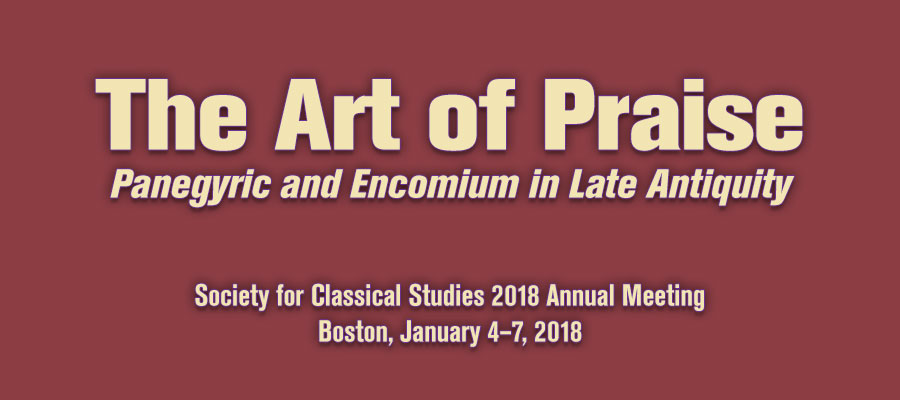The Art of Praise: Panegyric and Encomium in Late Antiquity, session at the Society for Classical Studies 2018 Annual Meeting, Boston, January 4–7, 2018
Near the turn of the last millennium two collections of essays appeared which called our attention to late antique panegyric.The Propaganda of Power: The Role of Panegyric in Late Antiquity, ed. Mary Whitby (1998) underlined the genre’s public and political contexts, while Greek Biography and Panegyric in Late Antiquity, eds. Thomas Hägg and Philip Rousseau (2000) explored its links with the forms and practices of biography and hagiography. The contributions to both volumes made it clear that from origins in the fourth century BCE to the end of antiquity (and beyond), panegyric proved a long-lived and highly adaptable platform for the articulation of social relations and the values that supported them.
At the meeting of the Society for Classical Studies in Boston, Massachusetts from 4-7 January 2018, the Society for Late Antiquity will sponsor a session to revisit the significance of the rhetoric of praise in late antiquity. We are especially interested in proposals that examine what, if anything, was distinctively “late antique” about late antique panegyric and encomium. In addition to papers addressing this specific question, we also welcome submissions on all aspects of these genres in late antiquity: theory and practice, political and private contexts, literary and declamatory presentations, prose and verse, parodic and ironic, etc.
Sponsored by the Society for Late Antiquity
